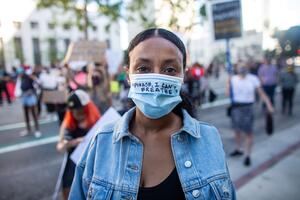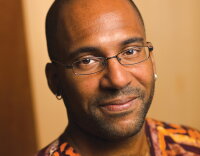Once again, we have witnessed white police and vigilantes murder Black people in the United States. George Floyd, Breonna Taylor, Ahmaud Arbery, and Tony McDade died violently and needlessly at the hands of white police officers and vigilantes. Their tragic and senseless deaths have triggered massive social protest in the United States and globally.
We are truly living in unprecedented times. The devastating effects of the Covid-19 global pandemic on U.S. Black communities helped to fuel mass outpourings of righteous anger and powerful demands for freedom and justice on city streets across this country. Indeed, Covid-19 has decimated the Black world and has exposed and exacerbated systemic racial oppression, state violence, structural inequalities, and precarity. In the United States, the Covid-19 mortality rate among African Americans is 2.4 times higher than it is for white people. In George Floyd’s home state of Minnesota, Black people make up only 7 percent of the state’s population, but they account for 16 percent of the roughly 23,000 confirmed Covid-19 cases. Similarly, African Americans in Chicago have borne the brunt of this deadly virus. They constitute 30 percent of the city’s population but 60 percent of its Covid-19 deaths. Beyond the United States, Covid-19 has deeply impacted African-descended in Latin America and the Caribbean. Africa is emerging as the next global hot spot of infection.
Where do we go from here? We are—to paraphrase the famous words of civil rights leader and grassroots activist Fannie Lou Hamer—“sick and tired of being sick and tired.” As scholars of African-descended people in the United States and across the world committed to Black liberation and to building a freer world, the Department of African American Studies at the University of Illinois at Urbana-Champaign expresses our full support for protests and solidarity with demands for social and racial justice.


